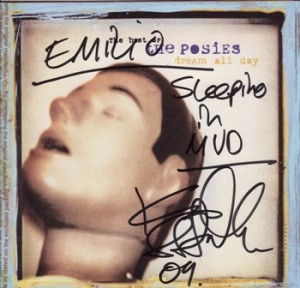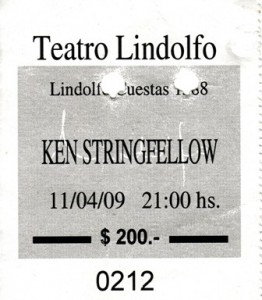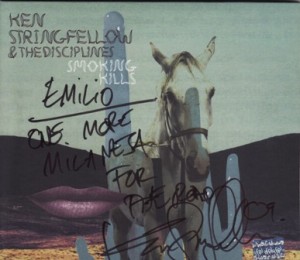
Radiohead Are: Thom Yorke, Jonny Greenwood, Ed O'Brien, Colin Greenwood & Phil Selway. All Five Members Met While Attending School At Oxfordshire.
Innovators in the truest sense of the word, the name of Radiohead is synonymous with the best music that came from the ‘90s. Conformed by five school friends from Oxfordshire, the band led by Thom Yorke mutated from a grungier outfit into electronica linchpins over the course of just three albums, writing the rule book as they went along with the songs they chose to release as singles.
Radiohead is also remembered as one of the biggest emotionally-tumultuous bands this side of Joy Division, The Sisters of Mercy and related acts. Yorke’s recurrent themes of paranoia and self-loathing surfaced as early as their first single, “Creep” (from “Pablo Honey”, 1993). The song was actually banned in England by Radio One on grounds of being too depressing, but when “Creep” became a surprise hit in Israel and then in San Francisco the band gained recognition in their home soil. They were thrown into an onslaught of live shows that left everyone dour, and the subsequent album was to be named after the mental condition that affects drivers that have risen to the top too quickly
“The Bends” (1995) included the desperate “Street Spirit”, the turmoil-weighed “High and Dry” and the we-have-fucking-had-it title track. But nowhere was the frustration expressed as clearly as in “My Iron Lung”, a song in which the music could barely sheathe the vitriol. Also included was the turbid yet beautiful “Fake Plastic Trees”, composed by the band the night after they attended a Jeff Buckley gig.
None of those songs managed to make them feel better as a performing unit (or as individuals, for that matter), and the sessions for their next album were the most trying ever.
But the struggle was worth it. “OK Computer” (1997) quickly became the best album not only of the year but also one of the most celebrated LPs of the whole decade. The band managed to beat lots of acts who had broader appeal like Oasis, whose “Be Here Now” was rebuffed by the public and found its way into the used racks pretty quickly. Continue reading



